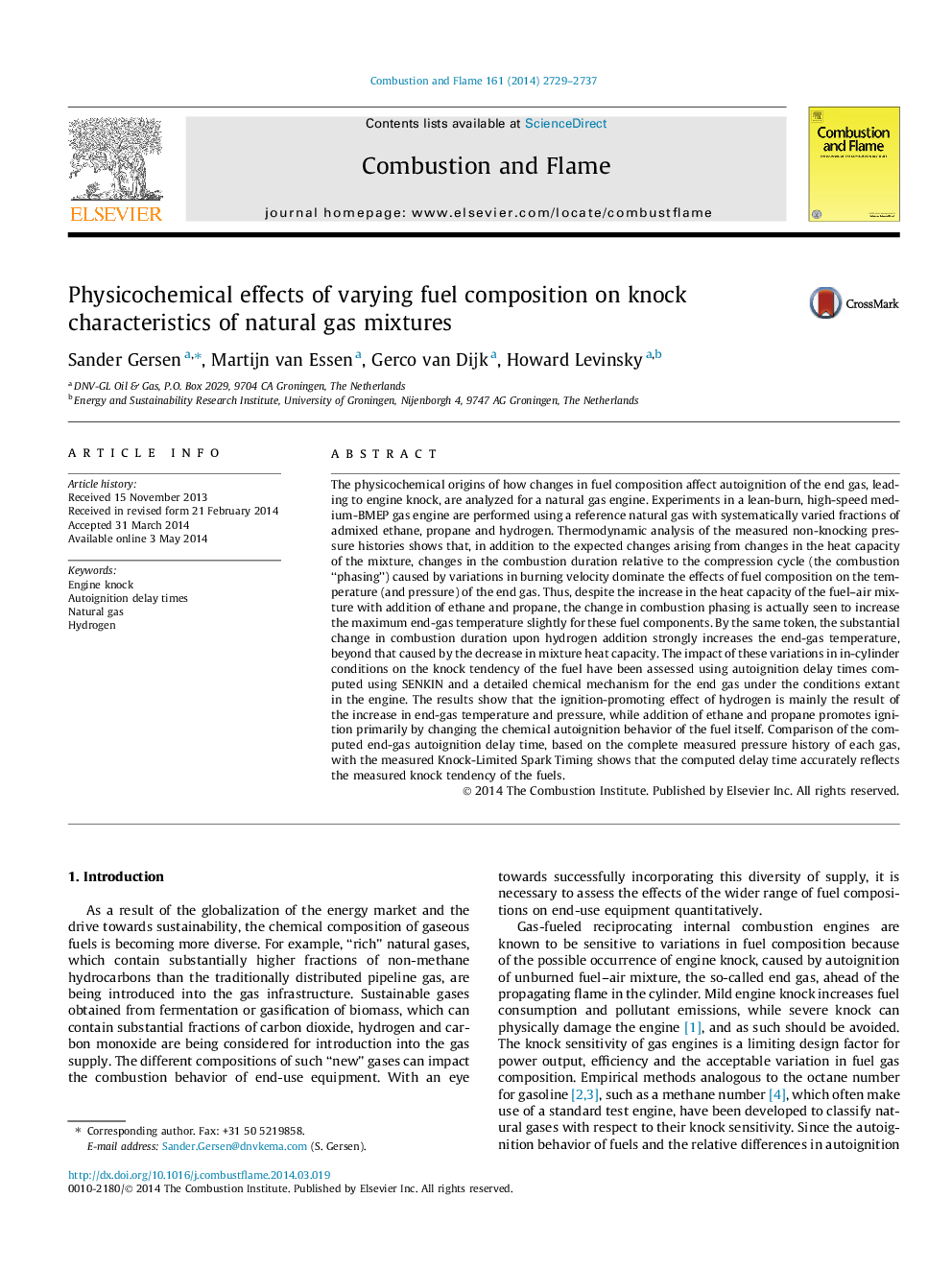| کد مقاله | کد نشریه | سال انتشار | مقاله انگلیسی | نسخه تمام متن |
|---|---|---|---|---|
| 169590 | 458019 | 2014 | 9 صفحه PDF | دانلود رایگان |
The physicochemical origins of how changes in fuel composition affect autoignition of the end gas, leading to engine knock, are analyzed for a natural gas engine. Experiments in a lean-burn, high-speed medium-BMEP gas engine are performed using a reference natural gas with systematically varied fractions of admixed ethane, propane and hydrogen. Thermodynamic analysis of the measured non-knocking pressure histories shows that, in addition to the expected changes arising from changes in the heat capacity of the mixture, changes in the combustion duration relative to the compression cycle (the combustion “phasing”) caused by variations in burning velocity dominate the effects of fuel composition on the temperature (and pressure) of the end gas. Thus, despite the increase in the heat capacity of the fuel–air mixture with addition of ethane and propane, the change in combustion phasing is actually seen to increase the maximum end-gas temperature slightly for these fuel components. By the same token, the substantial change in combustion duration upon hydrogen addition strongly increases the end-gas temperature, beyond that caused by the decrease in mixture heat capacity. The impact of these variations in in-cylinder conditions on the knock tendency of the fuel have been assessed using autoignition delay times computed using SENKIN and a detailed chemical mechanism for the end gas under the conditions extant in the engine. The results show that the ignition-promoting effect of hydrogen is mainly the result of the increase in end-gas temperature and pressure, while addition of ethane and propane promotes ignition primarily by changing the chemical autoignition behavior of the fuel itself. Comparison of the computed end-gas autoignition delay time, based on the complete measured pressure history of each gas, with the measured Knock-Limited Spark Timing shows that the computed delay time accurately reflects the measured knock tendency of the fuels.
Journal: Combustion and Flame - Volume 161, Issue 10, October 2014, Pages 2729–2737
